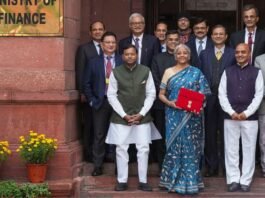
As the world’s second-largest economy battled to restore demand and calls for more immediate assistance increased, China’s consumer prices entered deflation in July while factory gate prices continued to decrease.
The National Bureau of Statistics (NBS) said on Wednesday that the consumer price index (CPI) for the month decreased 0.3% year over year, which was a somewhat slower decline than the median expectation of a 0.4% decrease in a Reuters poll. Since February 2021, there had not been a decline from year to year. In June, CPI remained constant.
After falling by 5.4% the month before, the producer price index (PPI) dropped for a tenth straight month, down 4.4% from a year earlier. This contrasted with a predicted decline of 4.1%.
After a quick start in the first quarter, China’s economic recovery stagnated as domestic and international demand declined. More moves are anticipated after the authorities implemented a flurry of policy measures to bolster the economy.
As the price data from China showed that its economic rebound was waning, Asian shares were on the back foot on Wednesday.
Following the results, both the Shanghai Composite Index (.SSEC) and China’s bluechip stock index, the CSI300 Index (.CSI300), fell.
The statistics come amid growing concerns that China is about to enter a phase of significantly slower economic growth akin to Japan’s “lost decades” following the 1990s, during which consumer prices and wages stagnated for a generation.
The devastating inflation that has affected the majority of other major countries and compelled central banks there to swiftly boost interest rates stands in stark contrast to China’s anaemic prices.
Prices in Brazil are drastically slowing, raising the abrupt possibility of an interest rate decrease in the world’s tenth-largest economy. However, there are other indications that global inflation may be peaking and, in some cases, reversing.
Concerns about deflation have been played down by Chinese authorities. The deputy governor of the central bank, Liu Guoqiang, stated last month that there would be no deflationary threats in China in the second half of the year but added that the economy would need time to recover from the pandemic.
In a separate statement, the NBS predicted that the CPI would increase as the economy strengthened and supply and demand dynamics improved.
The government has set a target for consumer inflation of roughly 3% this year, up from the 2% projected in 2022.
Consumers and manufacturers maintained their caution despite recent policy stimulus because to the still-weak housing market, rising youth unemployment, and waning interest among international companies to invest in China.
Following the significant Politburo meeting last month, investors have been impatiently awaiting the introduction of stimulus measures; nevertheless, China’s stock market has mostly been unimpressed by the lack of specific steps.



